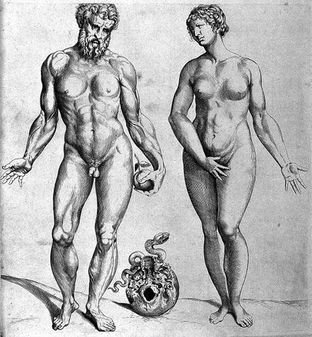 I read this great article the other day, and it reminded me that for many of us – when we are injured, and we go to the doctor, we are told that we should try to lose weight to keep pressure off our joints. It sounds good in theory, but in reality weight loss is not rehabilitation. We know that the dynamic interaction of gravity, weight and movement can create a great deal of pressure in our bodies. When running, the pressure your feet and joints have to negotiate can be around 300% of your body’s weight. I don’t mean to freak you out. The reality is this – if you weigh 100 kilograms and you manage to lose 10 – the difference in terms of stress applied to your joints? It’s negligible. We’re comparing 300 kilograms of impact forces to 270 kilograms. Losing weight will simply not give your joints the downtime you’re seeking. And if we consider further – protein isn’t just about rebuilding and repairing muscle after exercise. They talk about tissue repair in general fitness terms, but in reality – tissue repair is a pretty broad term, and it includes recovery from all kinds of injuries. Many people like to claim that it’s safe and achievable to shoot for a loss of up to 4 kilograms or 8 pounds in a month. If you’re losing weight at even half that rate, you’re ‘doing better’ than most, and frankly – for that to be possible, you’re most likely in a state of pretty serious dietary restriction.
3 Comments
 - for the injection of insulin - - for the injection of insulin - The fear is that fat acceptance is bad for diabetes, that it might lead to more cases of diabetes – that if I don’t hate and fear fat, I’ll become sick – but it’s total crap. As if being afraid of fat keeps us healthy? It’s rubbish. The truth is that fat acceptance and body positivism are good for people with diabetes, and here’s why: I have become aware of certain dangerous behaviours. There is a tendency with diabetics who have body-image issues, to let our blood sugar levels run too high – to inject only conservative amounts of insulin, because insulin “makes you hungry”, and we all want to be thin. We think we need to eat less, because we think we are too fat. If you are currently thinking that you, yourself really are too fat, you are wrong. Sorry. And anyway, eating less doesn’t make you healthier, and it doesn’t make you thinner, so fuck it all. 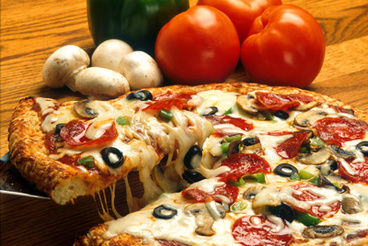 People are ashamed of eating these days. And I think it’s a terrible shame, that we are ashamed of our desire to eat. Because what is it, other than the desire to live? All of us must eat to survive, and ultimately, there can be nothing wrong with this. This exposes one of many lies: the desire to eat, even the desire to eat all the foods, is an act of self-love, not self-destruction. The will to not eat, however? What is that? I know so many thin people who fear food, perceiving it as the enemy, the adversary, the challenge to be conquered and overcome – because if the food wins, they’ll be fat. And I know so many fat people who perceive food as the enemy too, as the temptress that is to blame for their misery and plight.  I saw part of a documentary about mountain climbers, one who’d been in an accident and lost the use of his legs. He said you can’t be angry, because when you’re angry you don’t take care of yourself. It was about these guys who are just climbing for joy. He found a way to get back into it. They weren’t training to purify themselves or make themselves adequate, better or superior. Just because. It’s inspirational not because they’ve found a way to motivate their training – not because they’re active (and if they can climb, surely I can get my ass to the gym, c’mon – I really need to psyche myself up) – it’s inspirational because they’re naturally living their lives, motivated by joy – not fear and judgement. It’s not about the activity. It’s about not living in fear. Fear is the worst motivator. It’s effective, so we use it all the time. But it makes you feel like crap. Love and joy, all the way. Something worthwhile. I can be pretty angry about the state of the fitness industry, and the health industry in broader terms. If I wasn’t angry, I mightn’t have been as active as I have been. But anger isn’t a pure motivator either... You can get stuff done... But where does it lead? And what are you angry for, or against? And what’s the difference between the motivation to care for yourself, and the motivation to work for societal change? If you do care about yourself, do you need motivation to care for yourself? Or does that just work itself out naturally – because love begets love? And if you’re angry, and struggling to take care of yourself, what can you achieve in a broader context? What does anger beget? Buddhists say hatred ceases not by hatred – hatred ceases only by love. So how can you hate yourself healthy? Training for fat loss is so boring. It’s boring because you’re not really doing anything. Now, maybe I should be more disciplined and shit, and maybe then I can push through, and maybe I sound precious complaining about boredom, and maybe I should apply my awesome force of will power to my belly fat, but – it’s so boring.
The other way to combat boredom is to do something that’s engaging. That sounds like much more fun. The thing with conventional fat-loss styled training is that it’s based on the most unsophisticated of methods. It’s basically about burning calories – doesn’t matter what you’re doing – just burn the damn calories. It’s about the ‘energy deficit’ – but if a study involving 48,835 women showed that calorie restriction does not work in the long term, what are we expecting long term calorie expenditure to do? It’s still based on the same idea – getting yourself into an energy deficit. The (slightly) more sophisticated fat-loss systems will have you performing resistance training – compound movements (movements where you use a lot of muscle mass all at once, such as bench press and squats, as opposed to chest flyes and leg extensions) – but again the explanation is that using more muscles means you’re burning more calories, and with resistance training, you’re magically burning more calories for up to 72 hours after training, so if you add up all those calories you’re burning – squee! What a lot of calories! Oh yeah, except that calorie restriction doesn’t work.  A Fairy Under Starry Skies by Luis Ricards Falero I’m generally opposed to training or eating for fat loss, because I have seen so many people do themselves harm in the name of health. It makes me think of the phrase cutting off your nose to spite your face, and it is the very essence of self-delusion. It should be self-evident. Training for fat loss or muscle gain is not the same as training for health – if it was, you’d just call it “training for health”. This is why a Health At Every Size-based approach makes so much sense to me, and always has – if it really was about health, you’d just focus on your health, and let your body composition take care of itself, without judgement. I fail to see how this is anything other than logical and practical. But, there are other issues I’ve been thinking about lately, and I’m not sold on the idea that a nonspecific chance at improved health is the best reason to train. It’s certainly a benefit, but there are no guarantees, and there is a clear difference between a reason and a benefit. That’s a topic for another time. 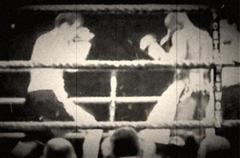 The problem with motivation is that we think we need it. Seriously – if you’re doing what you want to be doing, where is the need for motivation? We have a way of thinking about these things wrongly. You only need to motivate yourself to do something when it’s contrary to your nature. Why would you do such a thing? We have this expectation that the way to get what we want is by doing what we despise. Why we think this is a good idea is beyond me – this can only destroy ourselves by eating away at our very essence. 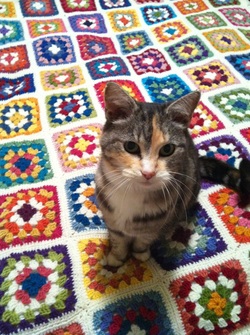 _ So, my blog is now a year old! Happy Birthday, blog! To mark the occasion, I think I’m going to do twelve cartwheels, one for each month, and maybe seventy-one push-ups, one for each article I’ve written. I hope you’re picking up on the theme – exercise is not a punishment. It is not something you can do to neutralise bad karma, and its inclusion in – or exclusion from – your life does not reflect on you as a person. It is something to be engaged with in whatever way you like – strength training is my thing, hence my choices. I did not choose a twelve kilometre run, or seventy holes of golf, or a one hour bike ride. To move freely (by which I simply mean – on your terms, whether structured or no, impulsively or whimsically, with labour or attention or absentmindedness) is to celebrate life. Also, I bought a new pair of shoes! Huzzah! 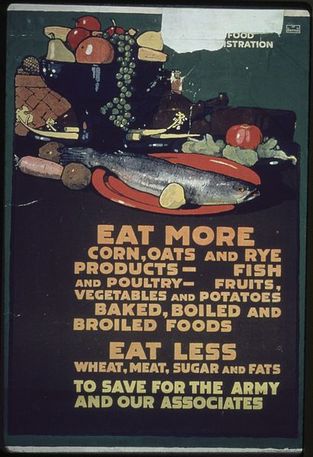 It's true - sugar and fats, they're valuable. It's true - sugar and fats, they're valuable. Rarely are people honest about just how much food we need to eat in order to be healthy. It’s more than you’d think. But really, who actually knows? It’s so variable from person to person, and is dependent on metabolic function, sleep, physical and mental activity, stress, and so many other variables – it’s impossible to calculate. So how do you tell? Hunger. Hunger should be enjoyed, as food should be enjoyed. To eat is to celebrate life. There’s pleasure in hunger, there’s anticipation with the knowledge that the payoff’s going to be awesome. There’s comfort in hunger, too, because there’s comfort in feeding, and to sit and wait on food, and contemplate what’s coming – this is an incredibly rare pleasure, that really should be a daily one. But if you’re dieting – hunger’s excruciating. Firstly, it never abates. Secondly, it feels all-consuming. Thirdly... oh, fuck it, those first two make it almost unbearable. But what is dieting? Dieting is nothing more than failing to feed yourself. What makes hunger unbearable is the absence of satiety. It’s the guilt that surrounds hunger in the first place, and the overwhelming socially-accepted but seriously fucked up underlying belief that food is the enemy and it must be vanquished. 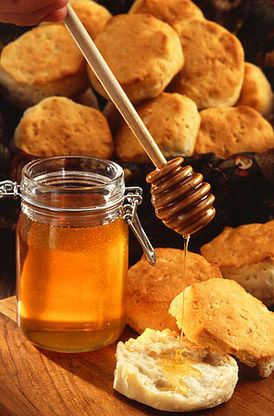 _ It’s the job of cravings to keep us alive when we fail to feed ourselves. There’s this weird idea that permeates our culture that if you’re eating plentifully, you’re eating too much, but if you’re not eating enough, that’s okay because you’re just dieting. Why not acknowledge that dieting equates to not eating enough? Why is it okay to fail to feed ourselves? To just ‘not be hungry’ at lunchtime? To have tea or coffee because we’re afraid if we eat, we’ll get fatter? It’s strange that we think not eating enough is the right thing to do. We don’t even think of it as not eating enough – we call it healthy choices, but ‘healthy choices’ actually means something different than ‘eating less’. We think it’s the disciplined thing to do, it’s morally superior, it’s good for us, we think indulgence is a sign of weakness, not of care. And to eat plentifully – we think that means we’re undisciplined, lazy, decadent, corrupt; that we pander to the demands of a body we do not respect, we do not appreciate or love. We think that because we want to be thinner, we don’t have the right to eat what we want, when we want it. We think being fat means there’s no such thing as ‘not eating enough’. And so we try to hide food from ourselves. If we want to lose weight, we’re loathe to sit down to table, to have a meal – the guilt’s too much. Because we don’t deserve to eat – we’re too fat – we have to restrict. So what do we do? Eat on the run, snack here and there, get food in however we can, without having to admit to ourselves that we are, in fact, eating. Without having to admit that we do actually deserve to eat what we want, when we want, in amounts that satisfy us. Without allowing us the freedom to enjoy our food. |
